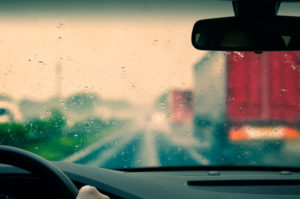 Let’s say that you work for a company where you are occasionally making deliveries on behalf of your employer. One day you walk out to your vehicle, buckle up, and pull out the road where you’re headed to your next destination. However, on the highway, you are hit by a negligent driver and suffer serious injuries as a result. Where do you turn? What happens when you are injured on the job while driving? How will you receive the compensation you deserve for your injuries?
Let’s say that you work for a company where you are occasionally making deliveries on behalf of your employer. One day you walk out to your vehicle, buckle up, and pull out the road where you’re headed to your next destination. However, on the highway, you are hit by a negligent driver and suffer serious injuries as a result. Where do you turn? What happens when you are injured on the job while driving? How will you receive the compensation you deserve for your injuries?
Employer liability for car accidents during working hours will be determined by a variety of factors. There are really two ways to find liability: employer negligence and vicarious liability. Here are both of those, further explained.
Employer Negligence: Two of the biggest types of negligence occurring in these cases involves hiring an employee negligently or supervising an employee negligently. For instance, shouldn’t an employer take precautions to hire an employee that they know will drive as safely as possible when they are working? This is why many employers will put requirements in place such as hiring employees who will not drive under the influence or do not have a huge criminal background involving vehicles. They should also meet the requirements of having their commercial driver’s license.
Negligent Supervision: Employers should also have reasonable safety policies in place and make sure that safety laws are being abided by. This means that, if there are special federal or state laws to be followed, employers should make sure that employees are abiding by them. This could include laws that revolve around weighing and loading. If an employer fails to keep track of this, then they could be sued for negligence.
Vicarious Liability: Under this rule, if an employer tells an employee to do something, it means that a principle is acting. In one example, an employee is sent on an errand for their boss but makes a side trip to get lunch along the way. If they become injured while getting lunch, they could not hold the employer responsible because they were doing that act “on their own time.”
Accidents Occurring During a Commute to Work
Under liability in the courts as well as workers’ compensation benefits, an employee will only be eligible to file if they were injured “within the scope of employment.” For instance, let’s say that you were driving a work truck and the vehicle was defective and caused your injuries on the roadway. Later, you find out that this happened because the employer failed to check important components of the vehicle, and this led to your injuries. You may be able to hold the employer responsible in this case.
However, consider another option. Let’s say that you were driving to work in the morning but didn’t quite make it there yet. You were injured along the way and now want to sue your employer for your injuries. You were not yet working in the scope of employment, so you could not hold the employer liable for your injuries. If it happens before and after work hours, liability will usually not fall on the employer.
Have you been injured on the job and need help with your claim? We can help you make a case against the employer who caused your injuries in some way. Call us today at The RAWA Law Group for more information on where to turn.


